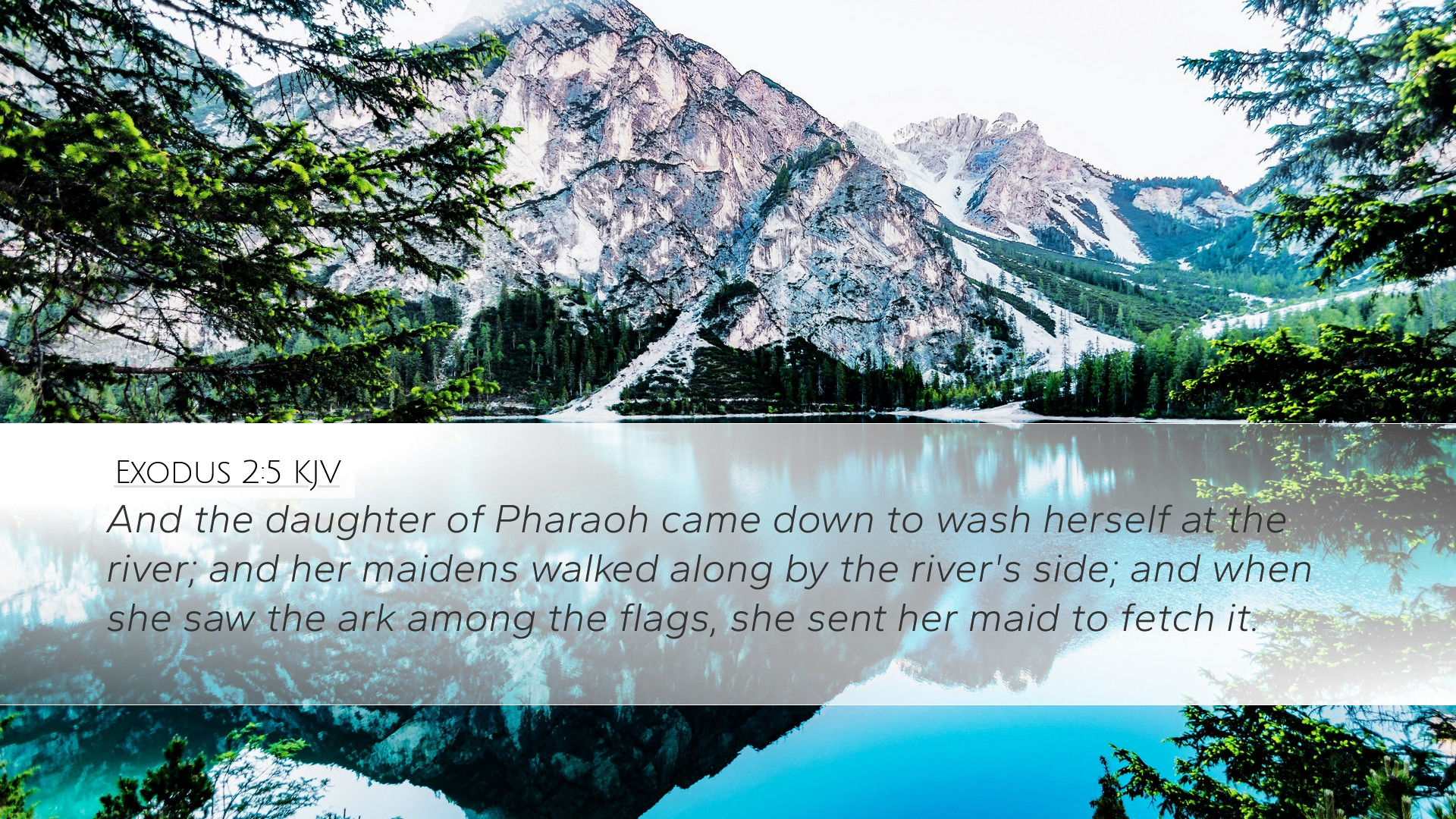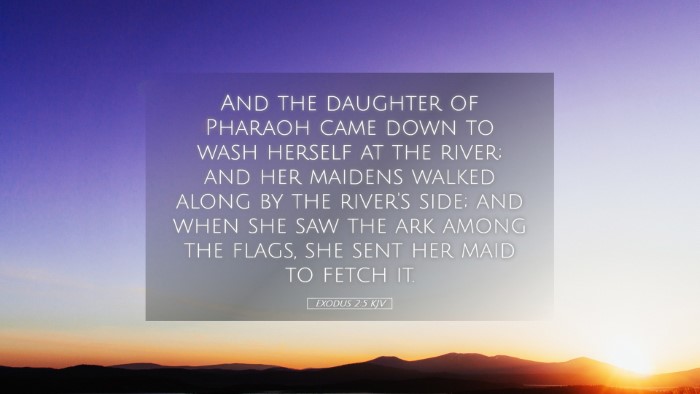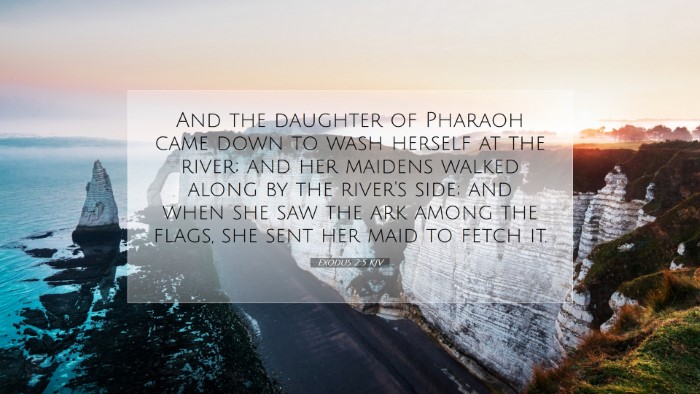Commentary on Exodus 2:5
Bible Verse: "And the daughter of Pharaoh came down to wash herself at the river; and her maidens walked along by the river's side; and when she saw the ark among the flags, she sent her maid to fetch it."
Introduction
This verse marks a pivotal moment in the narrative of Moses, the deliverer of the Israelites. The encounter of Pharaoh's daughter with the basket containing the infant Moses sets in motion events that will ultimately lead to the liberation of the Hebrew people from Egyptian bondage. Scholars and theologians examine this passage not only for its historical context but also for its theological implications.
The Role of Divine Providence
Matthew Henry emphasizes the providential hand of God in this account, highlighting that the arrival of Pharaoh's daughter at the river was not a mere coincidence. Rather, it was a carefully orchestrated divine intervention. This notion resonates with Romans 8:28, which states that all things work together for good for those who love God. The circumstances surrounding Moses' rescue are a testament to God's sovereignty and His ability to bring about His purposes through seemingly ordinary events.
Pharaoh's Daughter: A Lesson in Compassion
Albert Barnes notes that Pharaoh's daughter displays a significant contrast to her father. Despite being the daughter of the king who decreed the death of Hebrew infants, she shows compassion and kindness. This act serves as a reminder that compassion can arise from unexpected places and people. It also challenges the readers to consider their own attitudes towards those who may seem different or socially undesirable.
The Symbolism of the River
Adam Clarke points out the substantial symbolism of the Nile river in Egyptian culture. The river was a source of life and sustenance, yet it also became a place of death and destruction, as it was the means through which the male infants of the Hebrews were to be drowned. In the encounter of Pharaoh's daughter with the ark among the reeds, we see a transformation of a lethal environment into one of salvation, indicating the transformative power of God's intervention.
Significance of the Ark
The 'ark' in the passage, referred to in Hebrew as "tevah," holds deep significance. Matthew Henry draws parallels between this ark and the ark of Noah, suggesting that God's methods of saving His people often involve using similar imagery. The ark is a symbol of preservation and safety amidst danger, illustrating God's faithfulness to His promises.
The Maidens' Role
The maidens who accompany Pharaoh's daughter play a crucial supporting role in this narrative. Their actions set the stage for the eventual reunion of Moses with his biological mother, Jochebed, serving as a means through which God's plans unfold. This highlights the importance of community and support in fulfilling divine purposes. As Albert Barnes notes, it reminds us that every individual, no matter how seemingly minor their role, plays a part in God's plan.
Spiritual Implications
- God's Sovereignty: This verse distinctly illustrates God's control over history. Every event, including the mundane acts of bathing and maids attending their mistress, is under God’s master plan. It encourages believers to trust in God’s plan, even when circumstances appear chaotic.
- Compassion over Cruelty: The act of Pharaoh's daughter serves as a paradigm for compassion. It challenges believers to extend kindness across perceived barriers, thereby promoting unity and understanding among diverse groups.
- Hope in Despair: The fact that Moses was saved from certain death illustrates that no situation is too dire for God to intervene. This stands as an encouragement for those facing despair, reinforcing that God can bring light out of darkness.
Conclusion
Exodus 2:5 stands as a powerful reminder of God's providence, compassion, and the unfolding of His redemptive history. From Pharaoh's daughter to the ark among the reeds, every element in this passage reveals intricate layers of meaning relevant for pastors, students, and scholars alike. As they reflect on this verse, they are encouraged to embrace the truth that God is always at work, weaving together the tapestry of salvation even in the most unexpected of circumstances.


